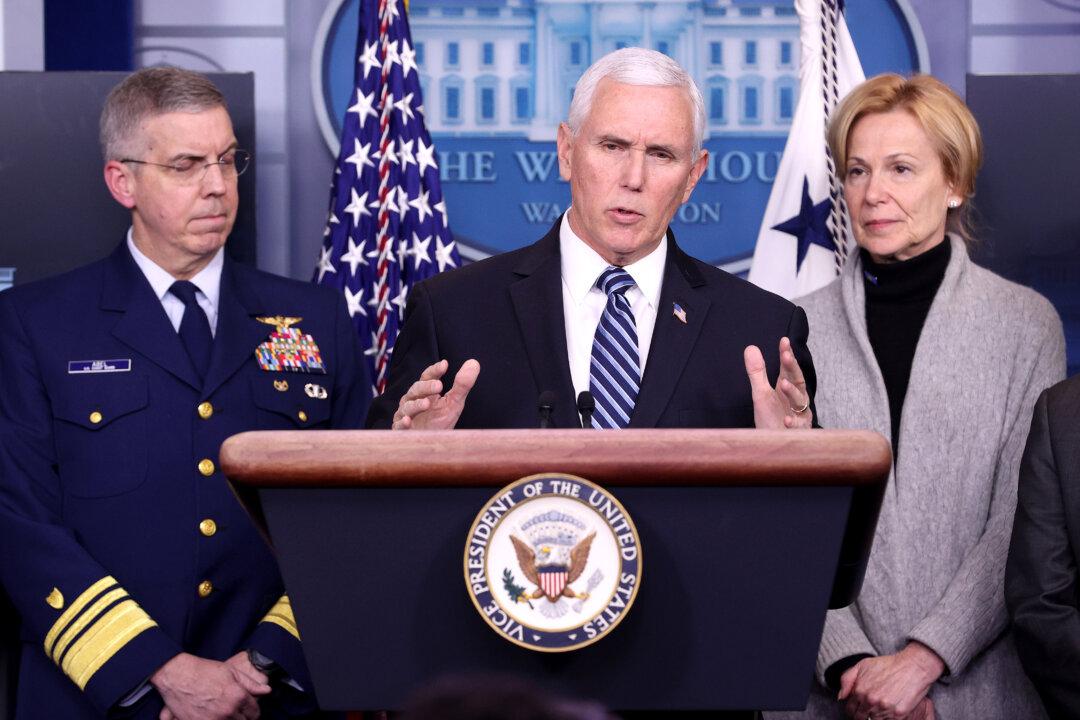Several major U.S. health insurance companies have agreed to waive copayments on COVID-19 testing and will extend coverage on treatment, according to Vice President Mike Pence.
Pence made the comments during a White House meeting with the chief executives of several insurance firms on Tuesday, and called on people to get tested, saying they shouldn’t worry about the potential cost of medical treatment.





